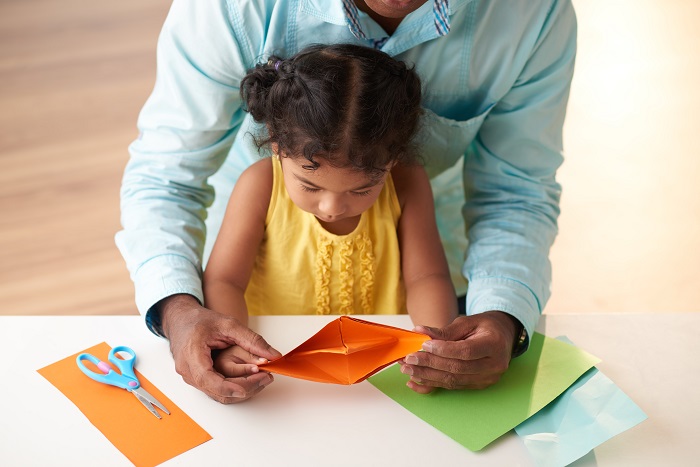The Crucial Role of Play in Early Child Development: Navigating the Impact of Play Deprivation
In the intricate mosaic of early childhood development, play stands as an indispensable thread weaving together the fabric of cognitive, social, emotional, and physical growth. Its significance cannot be overstated, as play serves as a foundational cornerstone for learning, creativity, and the acquisition of vital life skills. However, in the contemporary whirlwind of fast-paced living and technology-driven environments, the phenomenon of play deprivation has emerged as a pressing concern, carrying potential long-term consequences for the overall well-being of children. This article delves into the nuanced aspects of play, exploring how its absence may adversely impact the crucial stages of early child development.
- Understanding the Essence of Play:
- The Technological Onslaught:
- The Consequences of a Lack of Play:
- Social and Emotional Ramifications:
- Physical Well-being and Motor Skills:
- The Role of Parents and Caregivers:
Play, often described as a child’s “work,” encompasses a spectrum of activities that are spontaneous, enjoyable, and voluntary. From the imaginative play of toddlers to the structured games of older children, the play takes on various forms, including physical activities, pretend play, and social interactions. Renowned developmental psychologist Jean Piaget emphasised the value of play in creating knowledge and comprehending the outside environment.
Play provides a stimulating environment for the growth of cognitive abilities, including language, memory, and problem-solving. It also cultivates resilience, empathy, and emotional control, which establishes the groundwork for positive social connections. Physical play contributes to the enhancement of fine and gross motor skills, promoting overall physical well-being. The absence of play can disrupt this intricate web of developmental processes, potentially leading to long-lasting consequences.
In recent years, the advent of digital technology has significantly altered the landscape of childhood. While technology offers numerous benefits, excessive screen time and a shift toward sedentary activities have led to a decline in active, unstructured play. Children, once found exploring the outdoors or engaging in imaginative play, are increasingly tethered to electronic devices. This pervasive use of technology is contributing to play deprivation, with potential consequences for early childhood development.
Play acts as a cognitive laboratory for young minds, offering a realm where children can explore ideas, solve problems, and augment their intellectual capacities. Particularly crucial in fostering abstract thinking and creativity is imaginative play, involving activities like pretending to be characters or engaging in make-believe scenarios.
Studies indicate that the absence of play can impede the development of executive functions, encompassing skills such as attention control, working memory, and cognitive flexibility. When deprived of unstructured play, children may encounter challenges in tasks demanding sustained attention or creative problem-solving, potentially affecting their academic performance and future learning pursuits.
Moreover, the deficit in play may contribute to a diminished sense of curiosity and a reduced ability to explore and learn from the surrounding environment. The cognitive stimulation derived from play plays a pivotal role in forging neural connections, laying the groundwork for robust learning foundations throughout a child’s life.
Play is incredibly important in forming a child’s social and emotional setting, even beyond cognitive development. Children gain empathy, learn how to resolve disagreements and manage social relationships via play. Without these experiences, kids could have trouble forming and maintaining connections with others as well as comprehending and expressing their feelings.
Imaginative play, such as playing house or pretending to be different characters, provides a safe space for children to explore various emotions and social roles. This type of play enhances emotional intelligence, allowing children to recognize and manage their emotions effectively. Play also facilitates the development of resilience as children learn to cope with challenges, setbacks, and conflicts during play interactions.
Conversely, play deprivation may contribute to emotional dysregulation, difficulty forming connections with peers, and an increased likelihood of behavioural issues. The social skills acquired through play are invaluable, laying the groundwork for successful relationships and communication later in life.
Children’s general health is at risk due to the loss of physical play in an era of technology advancements and more screen time. Running, leaping, and climbing are examples of active play that are crucial for the development of coordination, muscular strength, and gross motor abilities. These physical activities support a healthy lifestyle and help avoid obesity.
Play also fosters fine motor skills through activities like drawing, building with blocks, or manipulating small objects. Fine motor skills are crucial for tasks such as writing, buttoning clothes, and using utensils, all of which are essential for a child’s independence and academic success.
Parents and caregivers play a pivotal role in mitigating the effects of play deprivation. Creating a conducive environment that encourages play is essential for a child’s holistic development. Here are some practical strategies for promoting play in a child’s daily life:
- Limit Screen Time:
- Provide Open-ended Toys:
- Encourage Outdoor Play:
- Participate in Play:
- Foster Social Interaction:
- Embrace Risk in Play:
Establish clear guidelines for screen time and prioritize activities that involve active engagement, such as outdoor play or board games.
Choose toys that allow for creativity and imagination. Blocks, art supplies, and open-ended playsets can stimulate a child’s inventiveness.
Spending time outdoors exposes children to diverse sensory experiences and promotes physical activity. Parks, nature walks, and playgrounds offer opportunities for unstructured play.
Engage in play with your child. Whether it’s building with blocks, playing pretend, or enjoying a game together, your involvement enhances the quality of the play experience.
Arrange playdates and social activities that enable children to interact with their peers. Social play is essential for developing communication skills, cooperation, and empathy.
Allow children to engage in activities that involve an element of risk within reasonable bounds. Risky play, such as climbing or exploring, contributes to the development of confidence and problem-solving skills.
In conclusion, during early childhood development, play assumes the role of a choreographer, orchestrating the cognitive, social, emotional, and physical movements that define a child’s growth. Its profound and multifaceted significance resonates as a fundamental force shaping the foundation of learning, creativity, and essential life skills. However, amidst the whirlwind of contemporary living, marked by rapid technological advancements, the spectre of play deprivation looms as a substantial concern, bearing potential ramifications for the well-being of the upcoming generation.
Understanding the myriad benefits of play is imperative for parents, caregivers, educators, and policymakers alike. By cultivating an environment that not only recognises but also prioritizes play, we contribute to the healthy development of children, empowering them with the skills necessary to navigate life’s intricacies. Play, with its spontaneity and joy, remains an indispensable ingredient in the recipe for nurturing a resilient and thriving generation. As we champion the cause of play, we invest not only in the present but also in the promising potential of a future where children can flourish, armed with the diverse skills forged through the transformative power of play.
For more such interesting blogs, Visit EuroKids
















